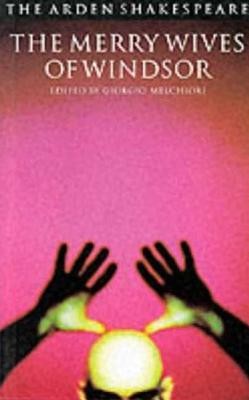
- We will send in 10–14 business days.
- Author: William Shakespeare
- Publisher: Arden Shakespeare
- ISBN-10: 190427112X
- ISBN-13: 9781904271123
- Format: 12.7 x 19.6 x 2 cm, minkšti viršeliai
- Language: English
- SAVE -10% with code: EXTRA
Reviews
Description
The Merry Wives of Windsor, Shakespeare's only thoroughly English comedy, created an archetypal literary figure in the shape of the devious, irrepressible John Falstaff. This stimulating new edition celebrates the play as a joyous exploration of language, but also places elements of its plot firmly in a continental, specifically Italian, tradition of romantic comedy. It draws out the complexities of Merry Wives as a multi-plot play, and takes a fresh and challenging look at both textual and dating issues; a facsimile of the first Quarto is included as an appendix. The play's extensive performance history, both dramatic and operatic, is fully explored and discussed.`This is a significant and substantive edition, in that nothing has been taken for granted, everything has been opened to reconsideration. The commentary is exceptionally detailed and attentive to questions of language and meaning.'John Jowett, Shakespeare Institute, University of Birmingham, Shakespeare Quarterly
EXTRA 10 % discount with code: EXTRA
The promotion ends in 23d.17:53:27
The discount code is valid when purchasing from 10 €. Discounts do not stack.
- Author: William Shakespeare
- Publisher: Arden Shakespeare
- ISBN-10: 190427112X
- ISBN-13: 9781904271123
- Format: 12.7 x 19.6 x 2 cm, minkšti viršeliai
- Language: English English
The Merry Wives of Windsor, Shakespeare's only thoroughly English comedy, created an archetypal literary figure in the shape of the devious, irrepressible John Falstaff. This stimulating new edition celebrates the play as a joyous exploration of language, but also places elements of its plot firmly in a continental, specifically Italian, tradition of romantic comedy. It draws out the complexities of Merry Wives as a multi-plot play, and takes a fresh and challenging look at both textual and dating issues; a facsimile of the first Quarto is included as an appendix. The play's extensive performance history, both dramatic and operatic, is fully explored and discussed.`This is a significant and substantive edition, in that nothing has been taken for granted, everything has been opened to reconsideration. The commentary is exceptionally detailed and attentive to questions of language and meaning.'John Jowett, Shakespeare Institute, University of Birmingham, Shakespeare Quarterly


Reviews